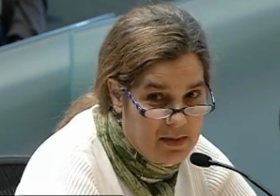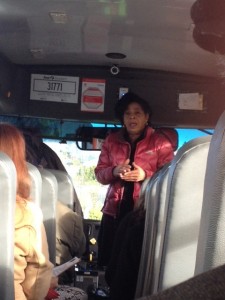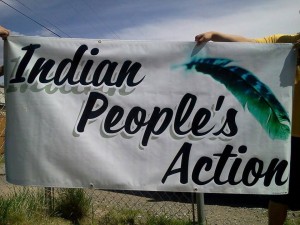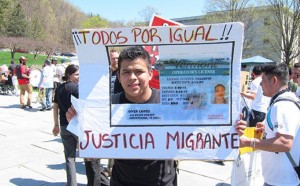Foreclosures and high numbers of underwater homes aren’t making headlines around the country the way they were a couple of years ago, but that doesn’t mean the housing market is back on solid footing – or that people are no longer suffering.
Thousands of families in Seattle are still dealing with the traumatic repercussions of the housing crash – wrecked credit, lost wealth, and relocation. Housing advocates, like Reset Seattle, are working with cities and public agencies to come up with creative ways to help homeowners.
Reset Seattle is asking the City of Seattle to use their power of eminent domain to buy underwater homes at fair market value, and then sell them to the current owners, at the current market price. It’s an innovative idea that just might help someone like Seattle high school teacher Betsy Andrews, who is hanging on to her home by a thread.

After being laid off from her job as an English teacher because of budget cuts, she worried that she wouldn’t be able to make the payments. Terrified of losing her house she called banks, worked with supposed-loan modification services, and spent hours and hours on the phone getting the run around. One “specialist” even told her the way to save her home was to “go get a job.”
“It is humiliating,” she recently told a Seattle City Council Committee that is hearing options for helping families facing foreclosure to save their homes.
Finally, after 18 months without work, Andrews is teaching again and sighing with relief that she would be able to keep her house. But within days, she came home to a “Notice of default. Intent to accelerate” notice from the bank on her front door.
“I consider myself well-educated and pretty savvy,” said Andrews. “This has been an absolute nightmare navigating the system. It has affected my health. The reality is, if I lose my home, I will never be in a position to buy a house again.”
Despite the heart-breaking stories, Seattle homeowners like Andrews are unlikely to get help anytime soon from the City of Seattle.
This week, the Interdepartmental Team (IDT) created by the City to review strategies for helping families, including using eminent domain, made its first report to the council committee.
The results were pretty disappointing.
What they presented during a two-hour meeting Wednesday (that you can watch here) was a half-hearted attempt to perform their assignment. They painted a rosy picture of the Seattle housing market that runs drastically counter to what organizers, advocates – and homeowners – are seeing in the community.
What was their alternative solution? More outreach to put people into the federal government’s HARP (Home Affordable Refinance Program) and HAMP (Home Affordable Modification Program). In the past two years, those two programs have helped a mere 125 homeowners in Seattle. They have caused many others unbearable misery.

“More outreach isn’t going to help people,” said Chris Genese with Washington Community Action Network and Reset Seattle. “Throwing more energy at the same programs that aren’t working – isn’t the answer. We need to do something else.
“I am disheartened the Interdepartmental Team didn’t mention, any real options,” said Genese. “Our interest from the beginning has been finding avenues for principle reduction, to keep families in their homes, and to restore wealth – particularly in communities of color.”
Reset Seattle is open to other creative options. Boston Community Capital bought homes at short sales and auction, then reissued the mortgage to the homeowner at 6.3 percent interest. The program has kept 500 families in their homes so far. Other cities have implemented other efforts to help homeowners, and protect communities.
While the Seattle’s interdepartmental team didn’t expressly say they were eliminating the eminent domain proposal, they emphasized “significant” legal and logistical barriers that they indicated would outweigh the potential benefit.
Seattle has a reputation as a progressive city. It’s a city built on daring and dreams. It’s a city willing to try something different.
So here’s my advice to Seattle’s interdisciplinary team: Let’s get creative, let’s be bold, and let’s try this again.
Jason Collette is a national organizer for the Alliance for a Just Society. He specializes in banking issues, especially around foreclosure, payday lending and student debt. Jason@allianceforajustsociety






